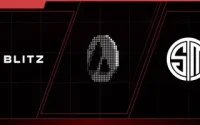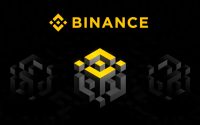Exploring ZK Roll-Ups: Insights From Cryptomeria Capital
Vadim Krekotin, the founding partner of Cryptomeria Capital, a crypto-focused investment company, delivered a comprehensive analysis of ZK roll-ups during the ETHBarcelona conference. His presentation provided valuable insights into the evolving landscape of zero-knowledge technology and its comparison to optimistic roll-ups.
Cryptomeria Capital's Vadim Krekotin provided a comprehensive overview of ZK roll-ups at ETHBarcelonahttps://t.co/Q6mZr2JnAj
— crypto.news (@itscrypto_news) July 10, 2023
Insights on Zero-Knowledge Roll-Ups
Krekotin, drawing on his experience as an investor in blockchain companies, explored the history of zero-knowledge technology, tracing its roots from 1989 to its integration into the Bitcoin whitepaper in 2008. He emphasized the distinctions between optimistic roll-ups and zero-knowledge roll-ups, focusing on factors such as trust, waiting periods, transaction fees, speed, and EVM compatibility.
While optimistic roll-ups rely on trust and game theory, resulting in longer waiting periods for users, zero-knowledge roll-ups require confidential proofs and may entail additional costs. Krekotin highlighted that zero-knowledge roll-ups involve more significant computational calculations for generating proofs, but offer faster transaction speeds compared to optimistic roll-ups.
The presentation also featured insights from Ethereum co-founder Vitalik Buterin, who suggested that optimistic roll-ups present a better short-term solution, while zero-knowledge roll-ups hold long-term promise. Krekotin emphasized the broader potential applications of zero-knowledge technology beyond blockchain and cryptocurrency.
Expansion of Zero-Knowledge Tech
Prominent projects and companies working on zero-knowledge roll-ups were showcased, including ZK-Sync, Polygon, Scroll, and SNARKWare. Krekotin delved into the architecture and functionality of ZK-Sync and StarNets ecosystems, highlighting ZK-Sync’s extensive ecosystem, higher transaction throughput, and successful fundraising efforts.
Krekotin discussed various use cases for ZK-Sync, such as decentralized finance (DeFi), identity decentralization, and data privacy. He expressed particular interest in transactional businesses, exchanges, payment solutions, and swaps that leverage ZK technology in their early stages of development.
Furthermore, Krekotin underscored the growing interest of major players like Visa and JP Morgan in the crypto space. He emphasized the potential for zero-knowledge technology to expand into industries beyond blockchain, such as finance, healthcare, supply chain management, and insurance. Krekotin provided a compelling example of how ZK technology could enable real estate developers to monetize data without revealing sensitive information to competitors.



